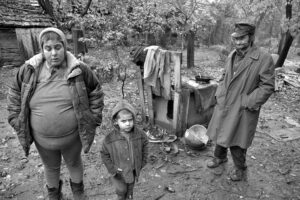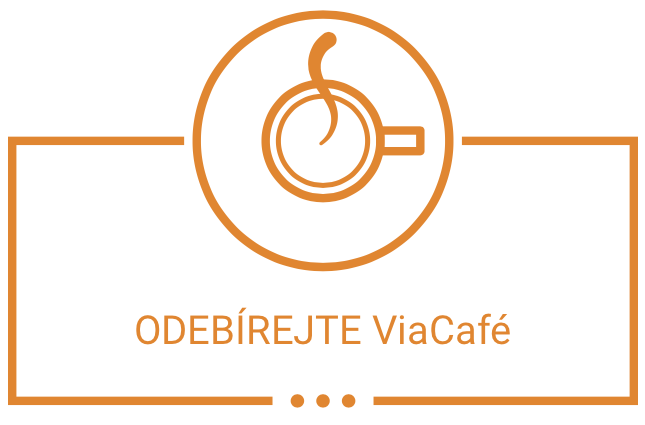Marie Horová was originally from the Carpatho-Ukraine but spent her adult life in Prague. She and her husband established a donor fund at Via Foundation in 2006 and Marie Horová later remembered Via Foundation in her will with a gift of $50,000. Through their gifts, we supported 28 educational projects for children in Carpatho-Ukrainebetween 2006 and 2017.This interview with Jiří Bárta about Marie Horová, Via’s first legacy donor, explains how it all came to pass.
Via: How did it all begin?
JB: We met Mr. Hora and Mrs. Horová through a young lawyer, who called Via sometime in 2006. She said, “Hello, I heard that Via knows how to establish donor funds for donors. The reason I ask is because I’ve met a couple (they were 83 at the time) and they really want to give away part of their life savings and I’ve been trying to convince them not to set up their own foundation,”. After that we began meeting with Mr. Hora and Mrs. Horová. Over borsch soup, golubci cabbage rolls and Becherovka liqueur we set up their fund to help children in the Carpatho-Ukraine. It was set up as a sinking fund – meaning that Mr. Hora and Mrs. Horová deposited a one-time gift of $13,000 into the fund and we started awarding $2,000 grants to support initiatives for Carpatho-Ukrainian children and youth. Mrs. Horová’s dream was to give children from poor Carpath-Ukrainian families access to education, a chance at success in life and a way out of poverty.
Via: Mrs.Horová was from the Carpatho-Ukraine. How old was she when she left?
JB: She was 17. She was born in 1920 as Maria Myšanič. One Sunday morning in 1937, right after her parents left for Sunday mass, she put on her folk costume and with a 5-crown coin in her purse she took a train to Prague. She stepped off the train in Prague, sat down on the curb in front of the train station and began to cry. Fortunately, a passerby recognized the Carpatho-Ukrainian folk costume and took the forlorn girl to a Carpatho-Ukrainian association in Prague. The people there took care of her.
Via: Why had she run away?
JB: Her father had decreed that she should marry a 40-year-old farmer. Young Marie refused and when her parents didn’t budge, she left. During her first years in Prague she worked as a cook and servant in households. And whenever she earned a few extra crowns, she went to a cafe – I think it was Café Platýz. A waiter there noticed her right away and began courting her. But at that time
Marie Myšanič was seeing a Ukrainian engineer in Prague and so the waiter was out of luck. In 1944 the gestapo arrested her love and imprisoned him. He never returned. The Ukrainian engineer disappeared from her life overnight. In 1945 the Soviet secret police began hunting for anyone from the Carpatho-Ukraine, telling them they were going to get a train ticket home. But Marie knew that it was a ticket straight to a Soviet labor camp. So she went to her favorite café, Platýz, and once again began to cry. The waiter, who had liked her since he first laid eyes on her, asked her what was wrong, she told him and the waiter – Mr. Hora – didn’t hesitate. He took Maria to his mother’s house in the Kladno region and within two weeks they were man and wife. Marie Myšanič became Marie Horová and the Soviets never found her. Mrs. Horová and Mr. Hora spent 63 years together, including their 50thwedding anniversary. When we met them they were 83 years old. They had no children. They had recently sold their house to a neighbor with a lien that gave them the right to live out their lives there. And they began considering how to best use the money from the sale of the house.
The money that Via Foundation received thanks to the will was from this sale. Mrs. Horová had a clear opinion about this money: “We can’t take it with us and we aren’t going to leave it for the Czech or the Ukrainian government,”.And so Mrs. Horová and Mr. Hora began fulfilling their dream: “Although we didn’t have any children ourselves, we know how hard the lives of children from poor families in the Carpathian mountains are. We’ll help them.”
Via: Did Mrs. Horová go back and visit her native country?
JB: She traveled there regularly until she was about 85. Part of her family was there, several siblings. Even though most of them had already passed away by then, Mrs. Horová was the youngest child in her family. Mr. Hora also came to love the Carpatho-Ukraine. Mrs. Horová embroidered Carpathian patterns in Prague, wrote Carpathian poetry and had very strong ties to her native land. And she often remembered the beautiful Carpathian mountains: “I really miss the mountains here in Prague,”she would say. But she was also well aware of how hard life in those mountains areas is. That’s one reason the Fund awarded grants to purchase mini-buses to transport kids from remote villages to school. I remember how Mrs. Horová used to say: “They don’t have any other way to get to school – and if they don’t go to school, they don’t have any chance to get ahead in life.”
Via: What country did she consider her home?
JB: Definitely Czechoslovakia. And the Carpatho-Ukraine. She wrote dthe exact mountain areas we were to support through the Fund directly into the statutes. She was born there, she knew it there and liked it and that’s why she wanted to help people there.
Via: Why did she decide to support education?
JB: She knew that conditions in the Carpatho-Ukraine are really tough and that if you don’t have access to education, your chances of succeeding in life are lower. She wanted to give more children a greater chance of succeeding in life and she viewed education as the key. She even refused to help disabled children in orphanages, saying: “I feel really sorry for them and empathize with them but with the limited resources I have, I want to invest into the development of healthy children who have the chance to educate themselves and live a fruitful life. With an education, they will be able to earn money and maybe even pass the help on to others.”She knew that she wanted to invest into the education of healthy children.
Via: A total of $69,000 was awarded in grants through the Mr. Hora and Mrs. Horová Fund from 2006 to its conclusion in 2016. How much of that came from Mrs. Horová’s bequeath?
JB: $50,000. So over two-thirds.
Via: Had Mr. Hora and Mrs. Horová decided jointly about the gift in the will?
JB: Yes. We didn’t know about it then, she never told us about it openly. There were certain indications that she was probably considering it, but it definitely wasn’t a topic that we discussed. During the first two years of the Fund both she and Mr. Hora took an active part in deciding which projects we would support. Mrs. Horová was on the jury and always read the grant applications very carefully. In 2008 Mr. Hora passed away. Mrs. Horová was 88 at the time. All of a sudden she was alone and it was clear – in a positive sense – that she didn’t have a strong opinion anymore about who we’d give grants to and what for. She let us tell her about the grant recipients but didn’t pay as close attention as before. Most of the time she wanted to talk about practical things like how to deal with the natural gas company, how to pay bills, what to do about the garbage service – Mr. Hora had always taken care of these matters and all of a sudden she was alone. And I realized that I wasn’t visiting Mrs. Horová on behalf of Via Foundation anymore, I was visiting on my own behalf. But I always tried to say: “Mrs. Horová, thanks to your generosity we helped these children…”and brought photos from the supported projects. But you could tell that she wanted to talk about other things and that she was thinking about what would happen after her death. It came to a head about six months before she passed away in 2011. We were at her house, talking, and she suddenly looked very serious and said: “Mr. Bárta, there’s one more thing I’ve been worrying about,”.And I could guess what she’d say next. She went on: “I don’t know who will take care of my funeral arrangements.”And because I knew her well by then, I said: “But I bet you’ve got a plan, don’t you?”And her face lit up, she ran over to her desk, where she had a sugar cube box, and said: “I do! Here are the pre-addressed envelopes for the obituary announcements and here’s what I want them to say. Here is the phone number of an orthodox priest and here is CZK 40,000 for the funeral. So I’m going to give you this box and you’ll take care of it.”So we shook hands and I promised to take care of it. And I went home with a sugar cube box in my hands and with an assignment that no one had ever asked me to take on before. And even then Mrs. Horová hadn’t said a word about her will. After she passed away less than a year later, the owner of the house called us and said: “We found a will here and Via Foundation is stated as the heir.”The will had clearly been written with her husband. It stated that whichever of the two was widowed would inherit the property from the other. And it also stated that after the second one passed away, the assets would go to Via Foundation. It’s interesting that the will didn’t say “to the Mr. Hora and Mrs. Horová Fund”, just “to Via Foundation”. Our Board of Directors discussed it and decided to respect Mrs. Horová’s wishes even if they hadn’t been explicitly written out and we used the money to continue helping children in the Carpatho-Ukraine.
Via: And did Mrs.Horová pass away at home?
JB: She passed away in the hospital. One night she fell, she was 91 by then, and she broke her ankle. They operated her ankle but after the operation she had an inflammation in her leg, and then she got pneumonia. She only had a few friends left by then who were older than her and they weren’t able to visit her in the hospital. And I realized that the people from Via Foundation, who she’d gotten to know over the previous eight years, were the only people she had left. I visited Mrs. Horová regularly and my co-worker Táňa Hlavatá was with her when she took her last breath.
Via: What memories do you have of Mrs. Horová?
JB: She was a very straightforward woman. With her everything was based on trust. She had lived through several regimes where trust was completely trodden upon. The Nazis, the Communists. So for her trust and the “giving your word” really meant a lot. I remember when we signed the first donation agreement for $13,000, I thanked her and she replied:“You can write anything on paper. Let’s shake hands and you promise me, that what we wrote and signed is the truth and that that’s how it will be.”So we shook hands and I physically felt the commitment. At moments like that you know that it’s not just talk, not just a signed piece of paper, but that I was really promising something real to this woman. That I would really do what we had agreed on and that she could rely on us.





